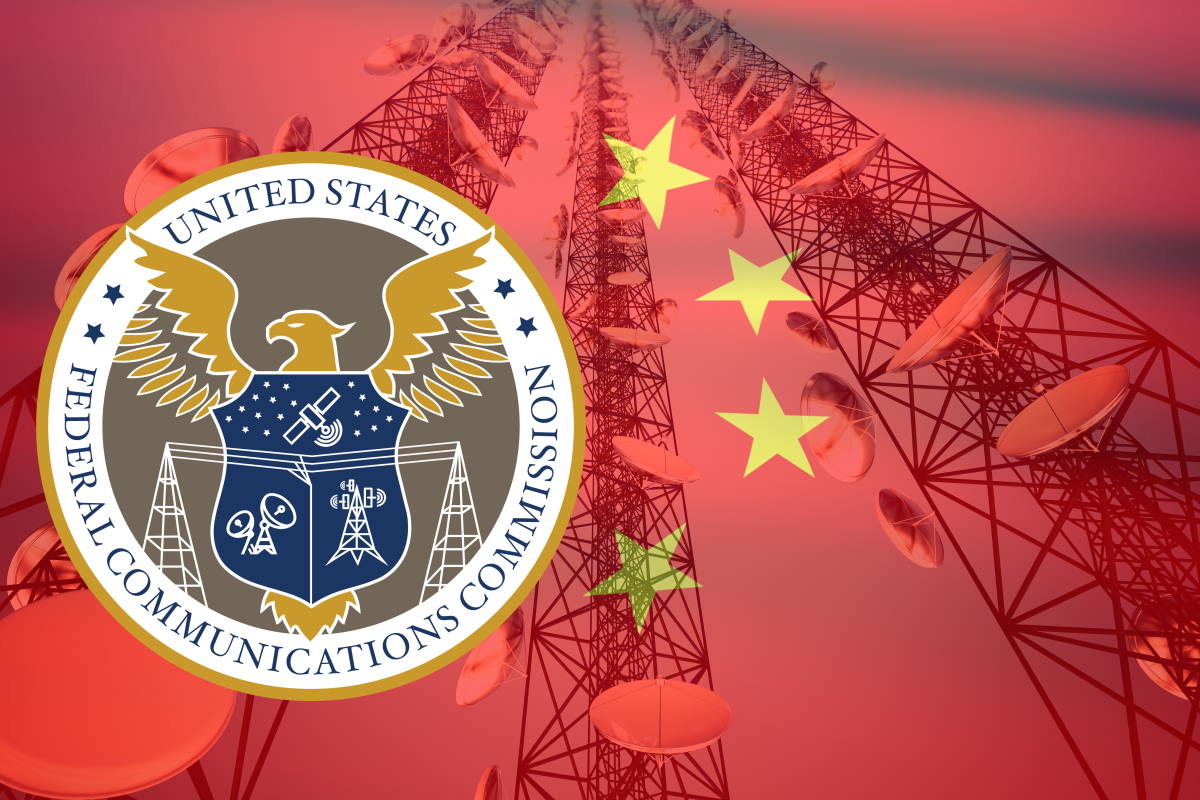Pacific Networks and ComNet cannot provide telecom services in the US, as FCC withdraws permission

The Federal Communications Commission (FCC) has banned Chinese telecom firm Pacific Networks and its wholly-owned subsidiary, ComNet (USA) LLC, from providing domestic interstate and international telecommunications services within the U.S.
“The Order on Revocation and Termination directs the companies to discontinue any domestic or international services that they provide pursuant to their section 214 authority within sixty days following the release of the Order,” the FCC said in a statement on Wednesday. “Based on input from Executive Branch agencies, thorough review of the companies’ responses in this proceeding, the public record, and the FCC’s public interest analysis under the law, the Commission finds that today’s action safeguards the nation’s telecommunications infrastructure from potential security threats,” it added.
The agency had in January issued an order directing “China Unicom Americas to discontinue any domestic or international services that it provides pursuant to its section 214 authority within sixty days following the release of the Order.” The agency’s actions come close to three months after it revoked and terminated on security grounds another Chinese provider, China Telecom (Americas) from providing domestic interstate and international telecommunications services within the U.S.
Last March, the Commission found that Pacific Networks and ComNet had failed to dispel serious concerns regarding the retention of their authority to provide telecommunications services in the United States. “The Commission thus adopted procedures that allowed for Pacific Networks and ComNet, the Executive Branch agencies, and the public to present any remaining arguments or evidence in the matter,” the agency said.
Based on the FCC’s public interest analysis and the totality of the extensive record, the Commission finds that the companies are U.S. subsidiaries of a Chinese state-owned entity, and therefore they are subject to exploitation, influence, and control by the Chinese government and are highly likely to be forced to comply with Chinese government requests without sufficient legal procedures subject to independent judicial oversight.
The FCC move comes from the changed national security environment concerning China since the Commission authorized the companies to provide telecommunications services in the United States. “The Order finds that the companies’ ownership and control by the Chinese government raise significant national security and law enforcement risks by providing opportunities for the companies, their parent entities, and affiliates, and the Chinese government to access, monitor, store, and in some cases disrupt and/or misroute U.S. communications, which in turn allow them to engage in espionage and other harmful activities against the United States,” it added.
Independent of these concerns, the companies’ conduct and representations to the Commission and Congress demonstrate a lack of trustworthiness and reliability that erodes the baseline level of trust that the Commission and other U.S. government agencies require of telecommunications carriers given the critical nature of the provision of telecommunications service in the United States, the agency said.
Given the record evidence, “the Order finds that further mitigation would not address these significant national security and law enforcement concerns. The Order therefore revokes the companies’ domestic and international section 214 authority,” FCC added.
Apart from revocation, the FCC order finds that the companies violated the 2009 Letter of Assurances with the Executive Branch agencies, compliance with which is an express condition of the companies’ international section 214 authorizations. “The Order therefore terminates the Companies’ international section 214 authorizations.”
In addition, given the record evidence of significant national security and law enforcement risks “concerning the companies’ section 214 authority, the Order will reclaim the two International Signaling Point Codes that were provisionally assigned to ComNet in 2001 and in 2003, sixty days from the release date of the Order,” it added.
China opposes a U.S. crackdown on its telecom companies, the nation’s commerce ministry said on Thursday after the FCC move stripped Pacific Networks and its ComNet unit of authorization to provide U.S. telecoms services, according to news agency Reuters. “Ministry spokesman Gao Feng told a news conference that China would take the measures necessary to safeguard the legitimate rights of its firms after the Federal Communications Commission voted on Wednesday to revoke the authorisation,” the report added.
“Having determined that certain state-owned enterprises could be subject to exploitation, influence, and control by foreign governments,” Jessica Rosenworcel, FCC Chairwoman, said in a statement. “As a result, in the last year, we revoked the authorizations of China Telecom Americas and China Unicom Americas to provide communications services in the United States,” she added.
“Today, we continue that work and do the same for two additional companies identified by our national security colleagues—Pacific Networks Corp. and its wholly-owned subsidiary, ComNet,” Rosenworcel said. “As before, we take this action after providing the companies with appropriate due process, including multiple opportunities to explain why we should not revoke their domestic and international authorities,” she added.
FCC Commissioner Brendan Carr said that the agency’s action is informed by the views submitted by the Executive Branch agencies with responsibility for national security reviews. “They advised that Pacific Networks and ComNet are ultimately owned and controlled by a Chinese state-owned entity. This raises significant national security and law enforcement risks due to their susceptibility to complying with China’s surveillance laws,” he added.
“Indeed, our own review found that the companies’ continued access to U.S. telecommunications infrastructure creates opportunities for the Chinese government or other state-backed actors to engage in espionage by monitoring U.S. traffic,” according to Carr. “Our review also found that the companies’ conduct towards the Commission and Congress lacked trustworthiness and reliability,” he added.










